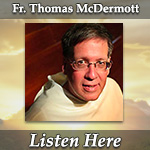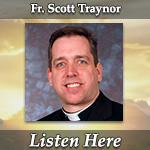Here is the portal that will allow you to enter the Catholic Spiritual Formation rooms below and be taught by those, past and present, who have travailed the spiritual journey. These are the Discerning Hearts formation rooms for Catholic Spiritual Direction.
Special Features
Here are subcategories in Spiritual Formation which contain a wealth of podcasts:
“A trusted resource…”
Archbishop George Lucas
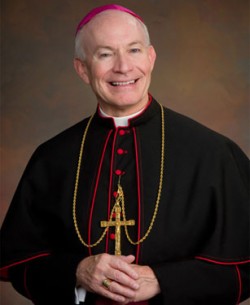
“Discerning Hearts is a trusted resource for Catholic spirituality and teaching. I support it as an apostolate for the new evangelization that brings the Good News to every corner of the world through the internet.”
Most Reverend George J. Lucas,
Archbishop of Omaha
Bishop James Conley
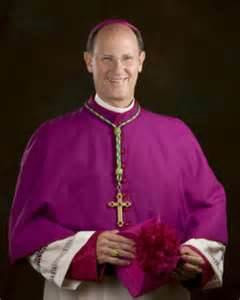
“Discerning Hearts offers orthodox resources for those who are serious about deepening their understanding of the spiritual life and the teachings of Holy Mother Church. I support this apostolate, which makes the treasury of Catholic wisdom and knowledge readily available.”
Most Reverend James Conley,
Bishop of Lincoln
Bishop William Dendinger
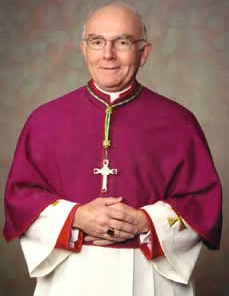
“Discerning Hearts is an outstanding resource for those searching for a deeper spirituality. It contains so many authors and speakers for enriching our spirituality. It’s a trusted resource and so quickly available. For those who live miles from their parish or a retreat center, this is the place to look! Join the many who are who are seeking the Face of God in a deeper way.”
Most Reverend William J. Dendinger
Bishop Emeritus of Grand Island
Catholic Spiritual Direction – Catholic Spiritual Formation
THE THREE AGES OF THE INTERIOR LIFE
Prelude of Eternal Life
by Reginald Garrigou-Lagrange, O.P.
PART 1 – The Sources of the Interior Life and Its End (cont)
Ch 17: Spiritual Direction
Spiritual direction should be numbered among the exterior
means of sanctification. We shall discuss its necessity in general and also in the different stages of the spiritual life, and then we shall recall the desired qualities of a director and the duties of the soul that is being directed.
THE NECESSITY OF DIRECTION
Though it is not an absolutely necessary means for the sanctification of, souls, direction is the normal means of spiritual progress. In constituting the Church, Christ willed that the faithful should be sanctified by submission to the pope and the bishops with respect to external jurisdiction, and in matters of conscience to confessors, who point out the means needed in order not to fall back into sin and to make progress in virtue.
Pope Leo XIII, (1) following Cassian and St. Francis de Sales, recalls on this subject the fact that St. Paul himself received a guide from the Lord. When Paul was converted, Jesus did not at once reveal His designs to him, but sent him to Ananias at Damascus to learn what he should do.(2)
St. Basil says: “Employ all diligence and use the greatest circumspection in finding a man who may serve you as a very sure guide in the work of leading a holy life which you wish to undertake. Choose one who knows how to show souls of good will the straight road toward God.” (3) He says elsewhere: “To believe that one does not need counsel is great pride.” (4)
St. Jerome writes to Rusticus: “Do not be your own master and do not set out upon a way that is entirely new for you without a guide; otherwise you will soon go astray.” St. Augustine also says: “As a blind man cannot follow the good road without a leader, no one can walk without a guide.” (5) No one is a good judge in his own cause by reason of secret pride which may make him deviate from the right path.
In his conferences, Cassian says that anyone who relies on his own judgment will never reach perfection and will not be able to avoid the snares of the devil.(6) He concludes that the best means to triumph over the most dangerous temptations is to make them known to a wise counselor who has the grace of state to enlighten us.(7) In reality, to manifest them to one who has a right to hear them often suffices to make them disappear.
St. Bernard says that novices in the religious life should be lead by a father director who instructs, directs, consoles, and encourages them.(8) In one of his letters he goes so far as to say: “He who constitutes himself his own director, becomes the disciple of a fool” And he adds: “As far as I am concerned, I declare that it is easier and safer for me to command many others than myself alone.” (9) Our self-love leads us less astray, in truth, in conducting others than in dealing with ourselves, and if we knew well how to apply to ourselves what we tell others, we would make far greater progress.
In the fourteenth century, St. Vincent Ferrer expressed the same thought in his De vita spirituali (Part II, chap. I). “Our Lord,” he says, “without whom we can do nothing, will never grant His grace to one who, having at his disposition a man capable of instructing and directing him, neglects this powerful means of sanctification, believing that he is sufficient to himself and that he can by his own powers seek and find the things useful to salvation. . . . A person having a director whom he obeys completely and unreservedly will reach his goal much more easily and rapidly than he could alone, even with the aid of a very keen intellect and learned books on spiritual matters. . . . In general, all who have reached perfection, have followed this road of obedience, unless, by a privilege and singular grace, God Himself instructed some souls that had no one to direct them.”
St. Teresa,(10) St. John of the Cross,(11) and St. Francis de Sales (12) teach the same doctrine. St. Francis de Sales says that we cannot judge our own cause impartially by reason of a complacency that is “so secret and imperceptible as not to be discovered even by those who are tainted therewith.” (13) Likewise a person who has been in a closed room for a long time does not notice that the air has become vitiated, whereas one who comes in from outside notices it immediately.
We understand quite well that we need a guide if we intend to climb a mountain. He is not less necessary for climbing to the summit of spiritual perfection, the more so as in this ascent we must avoid the snares laid by Satan, who wishes to prevent us from ascending.
St. Alphonsus, in his excellent book, Praxis confessarii (nos. 121-71), indicates the principal object of direction: mortification, the manner of receiving the sacraments, prayer, the practice of virtues, the sanctification of ordinary actions.
The testimony of all these authorities shows clearly the general need of direction. We shall obtain a clearer idea of this necessity by considering the three stages of the interior life, or the spiritual needs of beginners, of proficients, and of the perfect.
THE DIRECTION OF BEGINNERS
Beginners need wise, firm, and paternal direction for their formation. In religious orders, this direction is the special duty of masters and mistresses of novices.
Later its necessity is felt less, except at difficult periods when some change takes place, or again when an important decision must be made.
Beginners must evidently be forewarned against relapses and also against two contradictory defects. Some, who receive sensible consolations in prayer, confound them with graces of a higher order and presumptuously wish to cover the ground rapidly, and without delay to reach the life of union without passing through the indispensable degrees. (14) They must be reminded of the necessity of humility and be told that progress toward perfection is the work of a lifetime. No one can fly before he has wings, and no one begins the construction of a church with the spires, but with the foundation. (15) If the end to be obtained is first in the order of intention or of desire, it is, in reality, last in achievement, and the most modest means indispensable for reaching it must not be neglected.
Other beginners take a secret pride in austerity, as the Jansenists did, and practice such excessive exterior mortifications that they compromise their health. Then, in their efforts to take care of themselves, they fall into laxity and go from one extreme to the other. They need to learn the measure of Christian discretion and must understand that it is not sufficient to have, over and above a keen sensibility, the three theological virtues, but that it is necessary also to have between these two domains the moral virtues of prudence, justice, fortitude, and temperance, so that sensibility may gradually become disciplined and these superficial and passing impulses may not be confounded with the lofty aspirations of living faith, hope, and charity.
Direction is particularly necessary in this period of prolonged aridity, in which meditation becomes difficult, and quite severe temptations against chastity and patience also arise, accompanied at times by contradictions from without. According to St. John of the Cross,(16) this trial marks the passage from the purgative way of beginners to the illuminative way of proficients, but on condition that the three signs, which a good director can discern, are found in it. These three signs, which we shall speak of farther on, are the following: (1) When we find no comfort in the things of God, and also none in created things. (2) When the memory dwells ordinarily on God with a keen desire for perfection and the fear of not serving God. (3) When meditation is not possible and one feels inclined to a simple gaze on God. At the time of this crisis, which should be in the nature of a second conversion, it is well to pay close attention to a good director in order to traverse this difficult period generously and not to become a retarded soul. Farther on we shall discuss this subject at greater length.(17)
THE DIRECTION OF PROFICIENTS AND THE PERFECT
The necessity of a guide for certain periods of the spiritual life of the advanced confirms what we have just said about its necessity for beginners. We may with profit state this confirmation here.
Direction may customarily be given more rapidly to proficients because the proficient has a greater knowledge of the spiritual life and can briefly explain the point on which he needs counsel. The director then becomes the witness of the soul’s life and progress; he should be the instrument of the Holy Ghost in order to make sure that the soul is docile to His inspirations. To do this, the director should seek to know well the action of the interior Master in given souls that he may discern in each, as far as is possible, the good and the bad, the dominant defect to be combated and the special attraction of grace to be followed.
Recourse should be had to the director especially during the annual retreat in order to discuss with him in all frankness what constitutes the basis of the life of the soul, and to make sure of not falling into the defects of the advanced – hidden pride and presumption – which may become the source of great illusions.(18)
The proficient also experiences periods in which he particularly needs a good guide; especially is this the case when he has to pass through the trials which mark the entrance into the unitive way, and which St. John calls the passive purification of the spirit. This purification appears under various forms that are more or less accentuated. Generally it is a prolonged privation of sensible and also spiritual consolations. During this period strong temptations often arise against faith, hope, and fraternal charity, and even against the love of God. Evidently if a person is to pass through this difficult period, the help of a good director is highly desirable in order not to fall back at this time but rather to make progress. And he who can direct others during such a trial, would not be able to direct himself, for here there is no longer “any road traced out in advance,” as St. John of the Cross (19) says; one must follow the inspiration of the Holy Ghost and not confuse it with something that might resemble it. At this time, souls given to prayer have a more special need of an enlightened and experienced director. St. Teresa felt the need of opening her soul completely to learned men, versed in the things of the interior life, to make certain of her docility to the Holy Ghost.(20) The perfect themselves feel the need of this help to discover the harmony between passivity under the divine action and the activity which the Lord asks of them in order faithfully to practice the maxim: “fidelity and abandonment.” They feel the need of direction that they may with profound humility keep alive in their hearts the love of the cross.
We have here only touched on the direction of proficients in order to indicate that, if it is necessary for them, with far greater reason is it necessary for beginners.(21)
THE QUALITIES OF THE DIRECTOR AND THE DUTIES OF THE ONE BEING DIRECTED
St. Francis de Sales says on the subject of a director: “He must be a man of charity, learning, and prudence; if anyone of these three qualities be wanting in him, there is danger.” (22) St. Teresa expresses the same opinion.(23)
His charity ought to be disinterested and to incline him, not to draw hearts to himself but to lead them to God. On this point, Tauler is exacting and says that certain directors who draw souls to themselves are like hunting dogs that eat the hare instead of bringing it back to their master. Whereupon the hunter whips them soundly. The director’s charitable kindness should not be weakness; it should be firm and fearless in speaking the truth in order to lead souls effectively to goodness. Neither should he lose his time in useless conversations or letters, but go straight to the point for the good of the soul.
In addition, he should have a knowledge of the spiritual life, be penetrated with the teachings of the great masters of the interior life, and be a good psychologist. (24)
That the director may be the instrument of the Holy Ghost, he ought prudently to discern in souls the dominant defect to be avoided and the supernatural attraction to be followed. For this purpose, he must pray for light, especially in difficult cases, and, if he is humble, he will receive the graces of state. He will see that he must stimulate some and moderate the ardor of others, teaching the latter not to confound sentimentality with love, which proves itself by works.
When he directs generous souls, his prudence must avoid two dangers: that of wishing to lead all pious souls indiscriminately and rapidly to give themselves to contemplative prayer, and that of imagining that it is useless to concern oneself with this question. Here a person must advance neither too slowly nor too rapidly, but must examine whether there exist in the soul the three signs which we have pointed out, following the teaching of St. John of the Cross and several other great masters, in order to pass from discursive meditation to contemplation. Before these appear, it is well and sufficient to remind souls that they must be docile to the inspirations of the interior Master, as they are manifestly conformable to their vocation.
The duties of the directed soul spring obviously from what we have just said; the person who is being directed ought to respect his director as the representative of God, and to avoid two extremes opposed to respect for a director: sharp criticisms and excessive familiarity. This respect should be accompanied by a simple yet entirelyspiritual filial affection, which excludes petty jealousy and the desire to be specially loved.(25)
The person who is being directed should also have filial confidence in his director and great openness of heart towards him. As St. Francis de Sales so well explains it: “Open your heart to him with all sincerity and fidelity, manifesting clearly and explicitly the state of your conscience without fiction or dissimulation.” (26)
Lastly, he must be very docile in following the counsel given;
otherwise he would be following his own will rather than that of God. It is not forbidden to explain that there is serious difficulty in putting such or such advice into practice; but after such explanation, he must subordinate his judgment to that of the director. Strictly speaking, the director may be mistaken; but the person under his direction will not be mistaken in obeying him, unless he advises something contrary to faith and morals. In that event a change of director is imperative.
Not without grave reason, however, should anyone change his director or confessor. The change should certainly not be made because of inconstancy, pride, false shame, or curiosity. But this may be done if a person perceives that his director’s views are too natural and that his affection is excessively sensible, and that he has not the requisite learning, prudence, and discretion.
Except in these cases, a person should keep as far as possible a certain continuity in direction that there may truly be continuity in it and perseverance on the right road. We should not give up a good guide because he reproves us for our good. It may be well to recall what St. Louis used to say to his son: “Go to confession frequently; choose virtuous and learned confessors who know how to instruct you in what you ought to do or avoid, and give your confessors leave to reprove and admonish you freely.” Such a statement gives evidence of good, holy, and strong affection without any admixture of sentimentality, which is an affectation of sentiment.
Under these conditions, the director will be able to be the instrument of the Holy Ghost to control His action in us, and to make us ever more docile to divine inspirations. Thus we will truly advance along the narrow way, which becomes broader and broader as we draw near to the infinite goodness of God to which it leads.
Footnotes
1. Testem benevolentiae, January 22, 1899.
2. Acts 9:6.
3. Sermo de abd. rer.
4. See I Cap. Isaiae.
5. Sermo 112 de temp.
6. Collationes, II, 14 f., 24. ,
7. Ibid., II, 2, 5, 7, 10.
8. De diversis, sermo VIII, 7
9. Epist. 87, no. 7.
10. Life of St. Teresa by Herself, chap. 13.
11. Sentences et avis spirituels, no. 229.
12. Introduction to a Devout Life, Part III, chap. 28.
13. Ibid.
14. St. John of the Cross, The Dark Night of the Soul, Bk. I, chaps. 1-7: Defects of Beginners: inclination to pride, spiritual gluttony, envy, anger, sloth.
15. St. Teresa (The Interior Castle, fourth mansion, chap. 2) teaches us also clearly to distinguish between the divine tastes produced by infused contemplation and the satisfactions or consolations of active prayer. The divine delights come directly from the action of God; consolations, from our activity aided by grace: “When His Majesty wills to bestow on us any supernatural favors, we experience the greatest peace, calm, and sweetness in the inmost depths of our being.” Moreover, the effects are not less different than their origin. “No sooner has this heavenly water begun to issue from its source. . . than it seems to expand us and enlarge us internally, and benefit us in an inexplicable manner; nor does even the soul itself understand what it receives. It is conscious of what may be described as a certain fragrance, as if within its inmost depths were a brazier sprinkled with sweet perfumes.” The Lord wishes thus to make the soul know that He is very close to it. To confound sensible consolations with these divine delights would be a grievous mistake.
16. The Dark Night, Bk. I, chap. 9.
17. At the beginning of Part III: Entrance into the Illuminative Way (The Night of the Senses).
18. Cf. St. John of the Cross, The Dark Night of the Soul, Bk. II, chap. 2:Certain Imperfections of Proficients.
19. Cf. the Prologue of The Ascent of Mount Carmel and the sketch placed by the saint at the beginning of this work.
20. Life, chap. I3: “They who walk in the way of prayer have the greater need of learning; and the more spiritual they are, the greater is that need.”
21. Cf. infra, Part IV: The Entrance into the Unitive Way (The Night of the Spirit).
22. Introduction to a Devout Life, Part I, chap. 4.
23. Cf. Life, chap. 13: “It is of great consequence that the director should be prudent – I mean, of sound understanding – and a man of experience. If, in addition to this, he is a learned man, it is a very great matter. But if these three qualities cannot be had together, the first two are the most important, because learned men may be found with whom we can communicate when it is necessary. I mean, that for beginners learned men are of little use, if they are not men of prayer. I do not say that they are to have nothing to do with learned men. . . . Learning is a great thing. . . . From silly devotions, God deliver us!”
24. The study of psychology is particularly necessary for him when he has to direct persons affected with hysteria, psychasthenia, or neurasthenia. He should also know what mental troubles come from certain maladies, such as Basedow’s disease (hypertrophy of the thyroid glands) and other disorders in the functioning of the endocrine glands, especially at the critical age. Such disorders may give rise to a chronic and progressive intoxication, which engenders some mental confusion accompanied by fixed ideas.
Cf. Robert de Sinety, S.J., Psychopathologie et direction (Paris, Beauchesne, 1934). The author mentions also religious psychopathology, the precursory symptoms of psychopathy, and offers practical advice for the direction of
psychopaths.
25. St. Francis de Sales, Introduction to a Devout Life, Part I, chap. 4.
26. Ibid.













